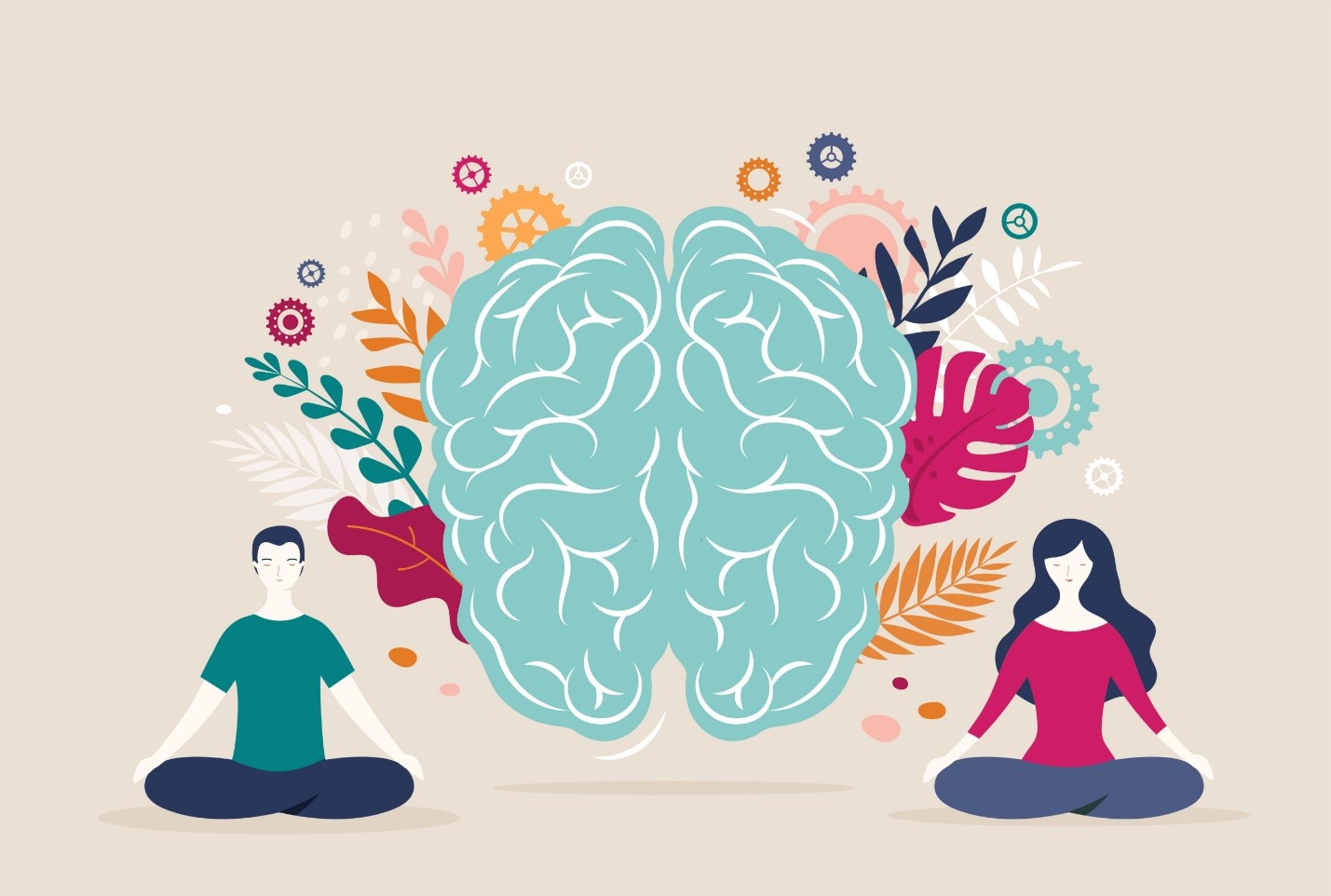In recent years, the healthcare landscape has evolved significantly, incorporating various holistic approaches to complement traditional medical treatments. Among these, mindfulness and meditation have gained considerable attention for their potential to enhance overall well-being. This article delves into the integration of mindfulness and meditation into healthcare, exploring their benefits, applications, and the growing body of evidence supporting their efficacy.
Understanding Mindfulness and Meditation
Mindfulness is the practice of being fully present and engaged in the moment, aware of one’s thoughts, feelings, and sensations without judgment. Meditation, on the other hand, is a broader term encompassing various techniques aimed at achieving a state of mental clarity and emotional calm. While mindfulness can be a component of meditation, not all meditation practices are focused on mindfulness.
The Rise of Mindfulness in Healthcare
The integration of mindfulness and meditation into healthcare is not a new phenomenon, but it has gained momentum in recent decades. This shift can be attributed to a growing recognition of the mind-body connection and the role of mental health in overall well-being. Several factors have contributed to this trend:
1. Scientific Validation
A substantial body of research has demonstrated the benefits of mindfulness and meditation for various health conditions. Studies have shown that these practices can reduce stress, anxiety, and depression, improve cognitive function, and enhance emotional regulation. For instance, a study published in the journal JAMA Internal Medicine found that mindfulness meditation programs can significantly reduce symptoms of anxiety, depression, and pain.
2. Patient Demand
As patients become more informed and proactive about their health, there is an increasing demand for holistic and complementary therapies. Many individuals seek out mindfulness and meditation as part of their self-care routines, prompting healthcare providers to incorporate these practices into their treatment plans.
3. Cost-Effectiveness
Mindfulness and meditation are relatively low-cost interventions that can be easily integrated into various healthcare settings. They require minimal equipment and can be practiced individually or in group settings, making them accessible to a wide range of patients.

Applications in Healthcare
Mindfulness and meditation are being integrated into healthcare in various ways, addressing both physical and mental health conditions. Here are some notable applications:
1. Stress Reduction
Chronic stress is a significant contributor to many health problems, including cardiovascular disease, diabetes, and mental health disorders. Mindfulness-based stress reduction (MBSR) programs, developed by Dr. Jon Kabat-Zinn, have been widely adopted in healthcare settings to help patients manage stress. These programs typically involve guided meditation, body scanning, and gentle yoga, teaching individuals to cultivate awareness and reduce stress.
2. Pain Management
Chronic pain is a complex condition that often requires a multifaceted approach to treatment. Mindfulness and meditation can play a crucial role in pain management by helping patients develop a different relationship with their pain. Techniques such as mindfulness-based cognitive therapy (MBCT) and loving-kindness meditation have shown promise in reducing pain perception and improving quality of life for individuals with chronic pain conditions.
3. Mental Health
Mindfulness and meditation have been extensively studied for their effects on mental health. These practices can help individuals manage symptoms of anxiety, depression, and post-traumatic stress disorder (PTSD). For example, MBCT combines mindfulness practices with cognitive-behavioral therapy (CBT) techniques to prevent relapse in individuals with recurrent depression. Additionally, mindfulness meditation has been found to reduce symptoms of PTSD and improve emotional regulation in trauma survivors.
4. Chronic Illness Management
For individuals with chronic illnesses such as diabetes, hypertension, and autoimmune disorders, mindfulness and meditation can be valuable tools for improving self-management and overall well-being. These practices can help patients develop greater awareness of their bodies, make healthier lifestyle choices, and cope with the emotional challenges of living with a chronic condition.
5. Enhancing Healthcare Provider Well-being
The integration of mindfulness and meditation into healthcare is not limited to patient care. Healthcare providers themselves can benefit from these practices, which can help reduce burnout, improve job satisfaction, and enhance the quality of patient care. Many medical schools and healthcare institutions now offer mindfulness training programs for their staff to promote well-being and resilience.
Evidence-Based Benefits
The growing interest in mindfulness and meditation in healthcare is supported by a robust body of scientific evidence. Here are some key findings from recent research:
1. Reduced Stress and Anxiety
Numerous studies have shown that mindfulness and meditation can significantly reduce stress and anxiety levels. A meta-analysis published in the journal JAMA Internal Medicine reviewed 47 clinical trials and concluded that mindfulness meditation programs can provide moderate improvements in anxiety, depression, and pain.
2. Improved Cognitive Function
Mindfulness and meditation have been associated with improvements in cognitive function, including attention, memory, and executive function. Research published in the journal Psychological Science found that mindfulness training can enhance working memory capacity and reduce mind-wandering.
3. Enhanced Emotional Regulation
Mindfulness and meditation can help individuals develop better emotional regulation skills, allowing them to respond to challenging situations with greater calm and clarity. A study published in the journal Emotion found that mindfulness meditation can increase emotional resilience and reduce negative affect.
4. Better Pain Management
Mindfulness and meditation have been shown to reduce pain perception and improve pain-related outcomes. A study published in the Journal of Neuroscience found that mindfulness meditation can reduce pain intensity and unpleasantness by altering the brain’s pain processing pathways.
5. Improved Quality of Life
For individuals with chronic illnesses, mindfulness and meditation can lead to significant improvements in quality of life. Research published in the journal Psychosomatic Medicine found that mindfulness-based interventions can improve physical and mental health outcomes in patients with chronic conditions.
Challenges and Future Directions
While the integration of mindfulness and meditation into healthcare holds great promise, there are several challenges to consider. These include:
1. Standardization
There is a need for standardized protocols and guidelines to ensure the consistent and effective application of mindfulness and meditation practices in healthcare settings. This includes developing training programs for healthcare providers and establishing best practices for integrating these interventions into treatment plans.
2. Accessibility
Ensuring that mindfulness and meditation programs are accessible to diverse populations is crucial. This includes addressing barriers such as cost, language, and cultural differences to make these practices available to all individuals, regardless of their background or socioeconomic status.
3. Further Research
While the existing body of evidence is promising, further research is needed to fully understand the mechanisms underlying the benefits of mindfulness and meditation and to identify the most effective approaches for different populations and conditions.
Conclusion
The integration of mindfulness and meditation into healthcare represents a significant shift towards a more holistic approach to well-being. As the scientific evidence continues to grow, these practices are becoming increasingly recognized as valuable tools for managing stress, improving mental health, and enhancing overall quality of life. By addressing the challenges and continuing to explore the potential of mindfulness and meditation, healthcare providers can offer more comprehensive and effective care to their patients.




